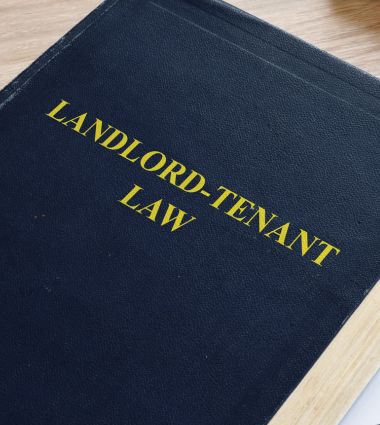What is a Leasehold Assignment? Understanding Your Rights in Ontario
Lease agreements don’t always go as planned. Maybe a job changes. Maybe life just shifts. Whatever the reason, sometimes a tenant has to move out early, and that’s where leasehold assignments come in.
In Ontario, it’s legal to transfer your lease to someone else, but it’s not quite as simple as just handing over the keys. Tenants have rules to follow, landlords have rights, and both sides need to know what’s at stake.
If you’ve heard the term but aren’t sure what it means, or if you're trying to figure out whether an assignment is even allowed, this guide lays it all out. We'll walk through the basics, what Ontario law says, and when getting legal advice makes sense.
Understanding Leasehold Assignment
A leasehold assignment happens when a tenant transfers their lease, meaning their full rights and responsibilities under the lease agreement to another person. Once the assignment is complete, the new tenant (called the assignee) takes over the lease and deals directly with the landlord. The original tenant usually steps out of the picture, assuming the landlord agrees to release them from any future obligations.
This is different from subletting. In a sublet, the original tenant still holds some responsibility and often returns after a set period. But with an assignment, it’s a full handover.
In Ontario, leasehold assignments are legally permitted under the Residential Tenancies Act, but they can’t be done informally. Tenants usually need the landlord’s written consent, and there are specific steps that must be followed to make it official.
Leasehold assignments are more common than people think, especially in busy rental markets like Toronto, where leases can be long, and life can change fast. Whether you’re looking to leave a lease early or take one over, it helps to know how these agreements work.
Leasehold Assignment vs. Subletting: What’s the Difference?
It’s easy to mix up leasehold assignments and subletting: they both involve someone new living in the rental unit, and both usually come up when a tenant needs to leave before their lease is up. But legally, they’re not the same thing.
In a leasehold assignment, the original tenant fully hands over the lease to a new person. The new tenant takes on everything - the rent payments, the terms, and the direct relationship with the landlord. Once the assignment is complete (and if the landlord agrees to release them), the original tenant is no longer involved.
A sublet works differently. Here, the original tenant remains responsible for the lease. They rent the unit out to someone else, but they’re still the ones who are ultimately on the hook. If the tenant doesn’t pay rent or damages the property, the original tenant could be left dealing with the fallout.
Here’s a quick example:
If you’re moving out of town permanently and you don’t plan to come back, a leasehold assignment makes more sense. But if you’re going away for six months for school or work and want to return, subletting might be a better option.
Each choice comes with its risks and rules, so tenants and landlords need to know the difference. In cities like Toronto, where temporary rentals are becoming more common, questions around legality and lease terms often come up, especially when it comes to short-term arrangements or changes in tenant occupancy.
What Ontario Law Says About Leasehold Assignments
In Ontario, the Residential Tenancies Act (RTA) gives tenants the right to assign their lease, but it’s not as simple as just finding someone to take over. A tenant must first get written consent from the landlord before moving ahead with a leasehold assignment. And while landlords can’t unreasonably refuse the request, they’re not required to approve just anyone.
If the landlord says no without a valid reason, tenants may be allowed to end their lease early. But if the landlord doesn’t respond within a reasonable time, that can create a legal grey are - one that often requires professional advice to resolve.
It’s also important to note: once an assignment is complete, the new tenant (assignee) takes over all responsibilities under the lease. The original tenant may or may not be released from liability depending on what’s agreed to in writing. Without a formal release, some landlords might still hold the original tenant responsible if problems come up.
For landlords, the law protects their right to vet new tenants while preventing unnecessary delays. And for tenants, it offers a path out of a lease, provided the steps are followed correctly. Failing to do so could lead to disputes or even small claims action.
Steps to Complete a Leasehold Assignment
The process of completing a leasehold assignment in Ontario involves several key steps, and both tenants and landlords must follow them to avoid legal issues. While the specifics can vary depending on the lease agreement, these are the general steps you can expect:
1. Review Your Lease Agreement
Before taking any steps, the first thing tenants should do is carefully review their lease agreement. Some agreements may contain clauses that restrict or completely prohibit leasehold assignments. If that’s the case, you’ll need to either negotiate with your landlord or consider other options.
2. Request Written Consent from the Landlord
As required by the Residential Tenancies Act, tenants must seek written consent from their landlord before proceeding with an assignment. The landlord’s approval shouldn’t be withheld without a good reason. If there is no response from the landlord within a reasonable timeframe, tenants can pursue legal options to move forward with the assignment.
3. Find an Assignee
Once the landlord approves the assignment request, the tenant can start searching for someone to take over the lease. Ideally, the new tenant (assignee) should meet the landlord’s criteria, including a good credit score and rental history, to ensure a smooth transition.
4. Draft an Assignment Agreement
This step involves creating a formal leasehold assignment agreement between the original tenant and the new tenant. The agreement should include all terms of the lease being transferred, such as the rental rate, duration, and any other clauses that might be relevant. It’s wise to have a professional real estate lawyer look over this agreement to make sure everything is legally sound.
5. Transfer Possession
Once all paperwork is signed, the final step is transferring possession of the property to the new tenant. From this point onward, the new tenant will assume all responsibilities under the lease agreement.
Risks and Considerations for Tenants and Landlords
Leasehold assignments can be practical, but they’re not without complications. One common risk for tenants is assuming they’re fully released from the lease once the assignment goes through. In reality, unless there’s a written release, they could still be held liable if the new tenant defaults or damages the unit.
Landlords, on the other hand, take on a new tenant they didn’t choose at the outset of the lease. Even with some vetting, there’s always a risk the assignee won’t uphold the same standards or care for the unit in the same way. This is especially a concern in long-term leases.
Disputes also arise when the process isn't followed correctly: missed notices, unclear agreements, or disagreements over security deposits can turn a seemingly simple switch into a legal headache.
That’s where a real estate lawyer in Ontario experienced in lease assignments becomes useful, not just for reviewing documents but for protecting both parties' interests. Whether it’s making sure the assignment terms are fair or resolving disagreements before they escalate, having legal support can reduce stress and help everyone stick to the rules.
When in doubt, it's always better to ask questions and clarify things before signing anything. A leasehold assignment might feel straightforward, but small mistakes can lead to big consequences later.
Leasehold assignments in Ontario can be straightforward - but only if the process is handled with care. From securing the landlord’s approval to drafting a proper agreement, there’s a lot that can go wrong without the right steps. Whether you're a tenant trying to exit early or a landlord weighing the risks, it helps to get everything in writing and know where you stand legally.
Frequently Asked Questions (FAQ)
Can a landlord refuse a lease assignment in Ontario?
Yes, but only under reasonable grounds. In Ontario, landlords can't deny a lease assignment request without a valid reason. If they refuse without cause or don’t respond, the tenant may have legal options under the Residential Tenancies Act.
What’s the difference between subletting and assigning a lease?
With a sublet, the original tenant remains responsible for the lease while someone else lives in the unit temporarily. With an assignment, the lease is fully transferred to a new tenant, and the original tenant is usually no longer involved.
Am I still responsible for rent after assigning my lease?
It depends. If the landlord didn’t release you in writing, you could still be held liable if the new tenant fails to pay or damages the unit. That’s why it’s important to clarify this before completing the assignment.
Do I need a lawyer to assign a lease?
Not legally, but it’s highly recommended. A real estate lawyer can review or draft the assignment agreement, help with landlord negotiations, and flag any terms that might create legal issues later on.
How long does a lease assignment take in Ontario?
There’s no fixed timeline. It depends on how quickly you find a new tenant, whether the landlord responds promptly, and how complex the agreement is. On average, the process can take anywhere from a week to over a month.
Real Estate
Family Law
Wills & Estates
Immigration
Join Our Mailing List.
Sign up with your email to receive our newsletter and stay informed about the latest legal developments and special offers.






















































































